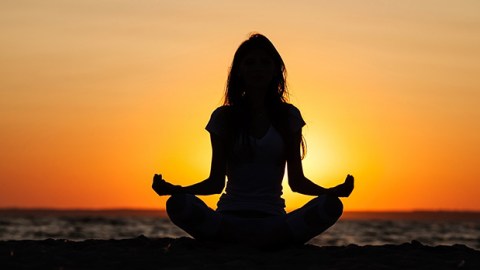The Seduction of Spiritual Celebrity

In traditional Sufism, a seeker would find a teacher and study under him for a number of years in a particular order, or turuq. During that time the seeker would have to listen to and diligently follow everything the teacher said. At some point in the apprenticeship, the student encountered a moment of satori—borrowing from the Japanese idea of a ‘breakthrough’—and understood that teacher and student were on the same ground. Their dynamic would immediately change, for the student was now a teacher as well.
I don’t want to romanticize this historical lesson from Islam (as well as other spiritual pursuits such as yoga and martial arts). We can’t be certain such a structure was implemented across all orders—we can suppose plenty of egomaniacal ‘teachers’ poisoned the ranks. Yet the one-on-one and small group tutelage that was a prominent feature of the spiritual life for centuries is today predominantly a relic. In its wake an entire culture of spiritual celebrity has arisen.
Within this varied crew of spiritual, or as they often label themselves, ‘thought leaders,’ plenty of honest seekers present their views on why existence was forged in some manner to make human beings excel at talking about how spiritual we are. (A handful of them are more honest: existence is a terrifying and at times overwhelming prospect; here are tools for dealing with that.) Yet when teachers and not the tools take center stage, the prospect of learning diminishes.
This isn’t to claim that the ‘old way’ is better. Finding that form of detailed and all-encompassing education would seem daunting in an age where healing sessions are held in group chats and soul retrievals take place via Skype. It also allows earnest students to stumble into teachers more concerned with his or her power than empowering others, which leads to the tiresome and troublesome cult of celebrity built up around one teacher and not that teacher’s method.
This mentality leaves no room for criticism. The dismissal of critique in American spiritual communities is reminiscent of the anti-intellectual crusade that Richard Hofstadter warned about a half-century ago. No one has led the charge against this as well as ‘yogilebrity’ website the Babarazzi, with articles like this, an intelligent commentary on teachers who think their messages should be above criticism.
The general mindset is this: we are teaching people how to live their ‘truth,’ or heal from some sort of trauma, or find inner peace—all noble endeavors—and thus an outsider should not be able to talk negatively about us. The brilliance of the Babarazzi is that criticism questions the method, not the teacher. Since the site launched last year, many of the ‘targets’ have not understood this; they’ve taken personally what was not meant to be personal.
This is the result of investing too much of your person and not enough of, well, the message. Thus you have a battalion of teachers armed with lessons that only resonate with their own lives, not the lives of their students, which is the only possible outcome when Youtube and online seminars are your platforms: I earn this much and you can too; to heal a broken heart you need to hear my story; to find the perfect relationship/career, do these methods that I did. They are not attempting to help people find themselves, they’re creating clones.
Such trends are compounded with social media, where teachers post photos of their classes without the students’ permission when they should be focusing on teaching. They might write ‘look at all these beautiful souls finding inner strength through yoga,’ but the translation is obvious: ‘look at how packed my class is.’ The same is true when teachers post ‘Thank you to all 385 students who came out to class today! I’m so humbled.’ No you’re not. If you were, you’d never write such a thing. The same holds true when actors and pro athletes take your class—it’s not about them, it’s about you.
Such seemingly innocuous examples are effectively harmless, but they’re also indicators of what the focus of that class/teacher is. The fact that you train an actress or the CEO of a famous company takes your class does not make your teachings especially relevant.
Part of the problem traces back to the methods by which we’re taught, which focus on lofty ideals instead of the actual science of understanding. The Yoga Alliance 200-hour program requirements, for example, are not overseen by any state agency, nor do medical professionals have to consult. The entire Anatomy & Physiology section requires a mere 20 hours of study, and only five must specifically pertain to physical anatomy—the other 15 can include metaphorical constructs like chakras and nadis.
This is how the yoga teacher turned into the life coach. While it sounds ‘deep’ saying ‘yoga is not exercise,’ most Americans practice yoga for exercise. There’s nothing wrong with this, and the fact that instructors, who are teaching postures to earn their living, would say such a thing is preposterous. How your third chakra is doing when you just blew out a knee doing an improper lunge or had an inexperienced teacher crank your back open on an adjustment is useless information. No, yoga is not just about exercise, but instead of conjuring past ideals, we need to investigate why people are coming today. Across the country we’re churning out metaphysical cheerleaders instead of teachers.
And these are the spiritual celebrities of our day. They’re not confined to yoga, though that is a prominent sector of this movement. The same tendency that causes politicians to choose power over people, even after setting out with humbler ambitions, happens to these ‘thought leaders.’ The world becomes a reflection of the person they see in the mirror every day. Instead of turning another mirror on those who arrive for inspiration and guidance, they send them a link to their Youtube channel. Analytics have trumped analyzation.
To turn to tradition one final time: a teacher would not accept a seeker to learn postures, breathing techniques and the deeper layers of self-investigation until they proficiently understood the ground floor of yoga, the ethics and moral restraints. Basically, if you were not acting right in society, you were not fit to partake in the overall discipline. But Patanjali did not create a ladder, he imagined a circle, where the moments of self-realization were entwined with how you acted in your culture. You couldn’t be enlightened if your actions kept indicating that you thought existence had carved out a special little place just for you. Maybe that’s one historical lesson we need to reimplement.
Image: Sweet November studio/shutterstock.com





